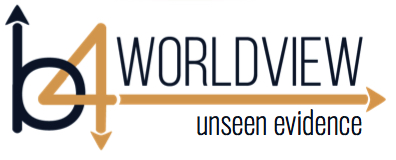
Key Thought for this session:
“Ultimately I can go only one of two ways — which path do I take?”
Did you notice that in these examples of worldviews about marriage that the first two assumptions about marriage are consistent with column A carnal identity and the third assumption of marriage is a column B spiritual identity?
Let’s look at some more case examples of the kinds of conversations you will likely face (if you haven’t already), and see how the concepts taught in this course could help you respond.
I will present to you several cases that you may encounter in school, at home, with friends or in your career. Remember, this course has focused you on core assumptions. One of the best ways to engage others on their various worldviews is to direct their conversations to consider the core assumptions on which they are built. Often, we try to convince others about conclusions that we have reached based on our worldview and they try to do the same with us. But we are more effective when we learn to redirect the discussion to the core assumptions that our worldviews are based on, and not the worldviews themselves. Also, when you face someone that challenges what you believe, it is better that you respond with questions rather than declarative statements debating their points. So, that’s what we want you to practice now. Listen as I read each case. Then, see if you can SPOT the ASSUMPTION within each available response that best directs the person to view the issue through core assumptions. OK, let’s start with a case study that uses core assumptions about Truth.
A lot of people think about truth and talk about truth and ask about truth, but are they really listening? As Sir Francis Bacon has been quoted as saying: “WHAT is truth? said jesting Pilate, and would not stay for an answer.”
Here is an opinion someone once presented to one of our faculty. For confidentiality reasons, we will call this person Jared. Jared was wrestling with the concept of truth. Here is what he said:
“The topic of truth... It’s about absolutes, isn’t it? What is truth? Well, I’m sure some would say something poetically obscure like, ‘God is truth,’ and be done with it. But is it really that easy? Really. Of what use is it to say that God has spoken... That settles it. Does it really? What about those who disagree? In fact, can any two individuals really agree on what is truth at any given time? Are not all our perspectives flawed and limited? Can we make such absolute and infinite judgments about anything?
“I believe truth cannot ever be defined perfectly. We are constantly discovering and rediscovering truth. Our search for truth never ends. Yes, we must operate within some semblance of true assumptions, and we MUST agree on some. We agree with those assumptions that appear to be the most beneficial or logical. But we should never limit ourselves by saying that our assumptions are perfect. They are flawed, because we are flawed. Therefore no one can claim to know any absolute truth. No one! We must operate within some agreed norms of truth, but at the same time, we humbly bow, acknowledging our fallibility. We realize that our understanding of truth is fluid as we grow and learn.”
What would you say to Jared? How would you challenge his point of view? Or would you agree? Remember, we said that responding with questions is a much more effective way to engage people in discussion rather than POUNDING THEM WITH FACTS! So, take a moment and select the question from the available options that represents how you would respond if you were trying to get Jared to consider his issue from the perspective of a column B spiritual identity.